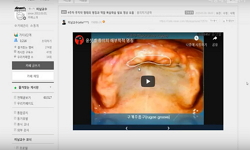Purpose: This study aimed to examine the effects of a simulation-based education on self-directed learning ability and clinical performance ability of stroke patients in nursing students. Methods: A non-equivalent control group pre-post test design wa...
http://chineseinput.net/에서 pinyin(병음)방식으로 중국어를 변환할 수 있습니다.
변환된 중국어를 복사하여 사용하시면 됩니다.
- 中文 을 입력하시려면 zhongwen을 입력하시고 space를누르시면됩니다.
- 北京 을 입력하시려면 beijing을 입력하시고 space를 누르시면 됩니다.
시뮬레이션기반 교육이 간호대학생의 자기주도적 학습능력과 임상수행능력에 미치는 효과 : 뇌졸중환자 사례 중심으로 = Effects of a Simulation-based Education focused on Stroke Patients on Self-directed Learning Ability and Clinical Performance Ability in Nursing
한글로보기https://www.riss.kr/link?id=T13534527
- 저자
-
발행사항
경산 : 대구가톨릭대학교 보건과학대학원, 2014
-
학위논문사항
학위논문(석사) -- 대구가톨릭대학교 보건과학대학원 , 임상간호학과 노인전문간호사과정 , 2014. 8
-
발행연도
2014
-
작성언어
한국어
-
주제어
시뮬레이션기반 ; 시뮬레이션기반 교육 ; 간호대학생 ; 간호학과 학생 ; 자기주도적 학습 ; 학습 ; 학습능력 ; 학습수행능력 ; 임상수행능력 ; 임상수행 ; 뇌졸중 환자 ; 뇌졸중 ; Simulation ; Clinical Performance ; Learning ; Nursing students ; Debriefing
-
발행국(도시)
경상북도
-
형태사항
vi, 109 p. ; 26 cm
-
일반주기명
지도교수: 성기월
- 소장기관
-
0
상세조회 -
0
다운로드
부가정보
다국어 초록 (Multilingual Abstract)
Purpose: This study aimed to examine the effects of a simulation-based education on self-directed learning ability and clinical performance ability of stroke patients in nursing students. Methods: A non-equivalent control group pre-post test design was used with 42 nursing students. An experimental group (n=21) participated in the simulation-based education and a control group (n=21) received study materials and self study. The simulation-based education was conducted and evaluated from October 1st, 2013 to March 10th, 2014, constructed simulations of three situations of stroke patients and conducted for 10~15 minutes and debriefed for 45-60 minutes per one session. Self-directed learning abilities and clinical performance abilities were used in order to evaluate effects of the simulation-based education. Collected data was analyzed using X² test, t-test, Mann-Whitney U test, and ANCOVA by IBM SPSS 20.0 statistics. Results: The experimental group improved on self-directed learning ability and clinical performance ability than control group. Conclusions: Result indicate that simulation-based nursing education has positive effects on self-directed learning ability and clinical performance ability in nursing students.
목차 (Table of Contents)
- Ⅰ. 서론 1
- 1. 연구의 필요성 1
- 2. 연구 목적 3
- 3. 연구 가설 4
- 4. 용어 정의 4
- Ⅰ. 서론 1
- 1. 연구의 필요성 1
- 2. 연구 목적 3
- 3. 연구 가설 4
- 4. 용어 정의 4
- Ⅱ. 문헌고찰 6
- 1. 시뮬레이션기반 교육 6
- 2. 간호대학생의 자기주도적 학습능력 7
- 3. 간호대학생의 임상수행능력 9
- Ⅲ. 연구 방법 12
- 1. 연구 설계 12
- 2. 연구 대상자 13
- 3. 연구 도구 13
- 4. 시뮬레이션기반 뇌졸중환자 간호교육 14
- 5. 연구 진행 절차 19
- 6. 자료 분석 방법 20
- Ⅳ. 연구 결과 21
- 1. 대상자의 동질성 검정 21
- 2. 시뮬레이션기반 뇌졸중환자 간호교육이 자기주도적 학습능력과 임상수행능력에 미치는 효과 25
- Ⅴ. 논 의 28
- 1. 시뮬레이션기반 뇌졸중환자 간호교육이 자기주도적 학습능력에 미치는 효과 28
- 2. 시뮬레이션기반 뇌졸중환자 간호교육이 임상수행능력에 미치는 효과 29
- Ⅵ. 결론 및 제언 32
- 1. 결론 32
- 2. 제언 33
- 참고문헌 34
- 부 록 43












